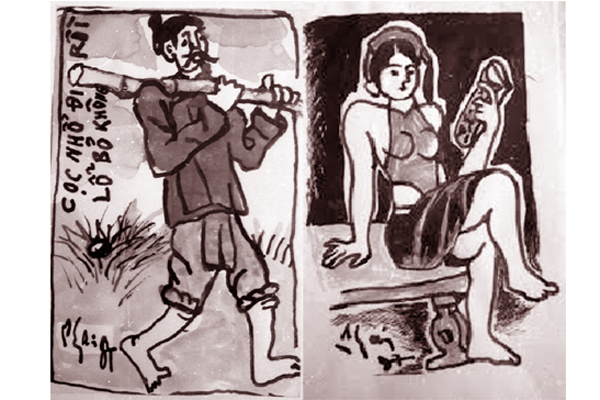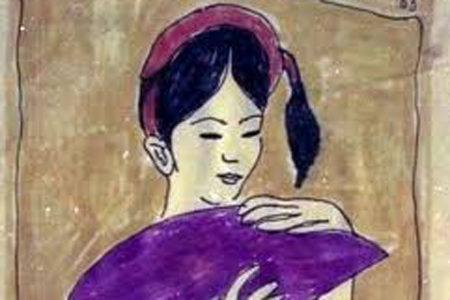Yet, certain authors refrain both from enthusiasm and outright rejection. This is the case of Dang Thanh Le and Nguyen Duc Dung. Professors at the Teachers' Training College who express themselves in Nghien Cuu Van Hoc.
They hesitate to give them opinion on Ho Xuan Huong's poetry not because it is "a rose with thorns or a knife with a two-edged blade’ but because ’first and foremost the documents on Ho Xuan Huong's life and works are not at all precise". They condemn Nguyen Duc Binh for having a priori left out all critical research to delight in his own arbitrary deductions.
Basing their judgments on about fifty of her poems, they consider that the essence of Ho Xuan Huong's thought is the criticism of feudal morality; on this point, they agree with Nguyen Duc Binh and many other critics.

For them, to lay stress on the glorification of the sexual instincts and to consider that all her poetry can be reduced to that is really "disappointing for poetry, for Vietnamese literature and for all the admirers of their literature".
Motion towards compromise which still keeps traces of Confucianism because Ho Xuan Huong's originality is precisely the fact that she has risen up against feudal Confucian society in her poems for the liberation of the women, physically as well as morally.
The polemic about Ho Xuan Huong seems to die away, in the middle of the sixties, with the beginning of the American bombing. In any case, the 'licentious’ poetess occupies a noteworthy place in the official History of Vietnamese Literature published by the Institute of Vietnamese Literature in 1980.



